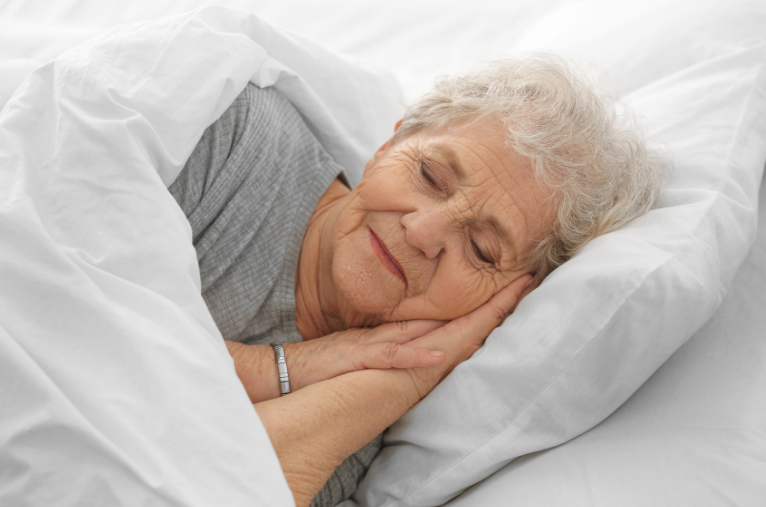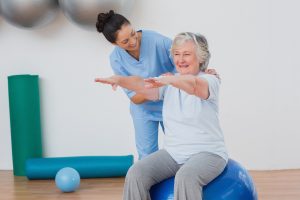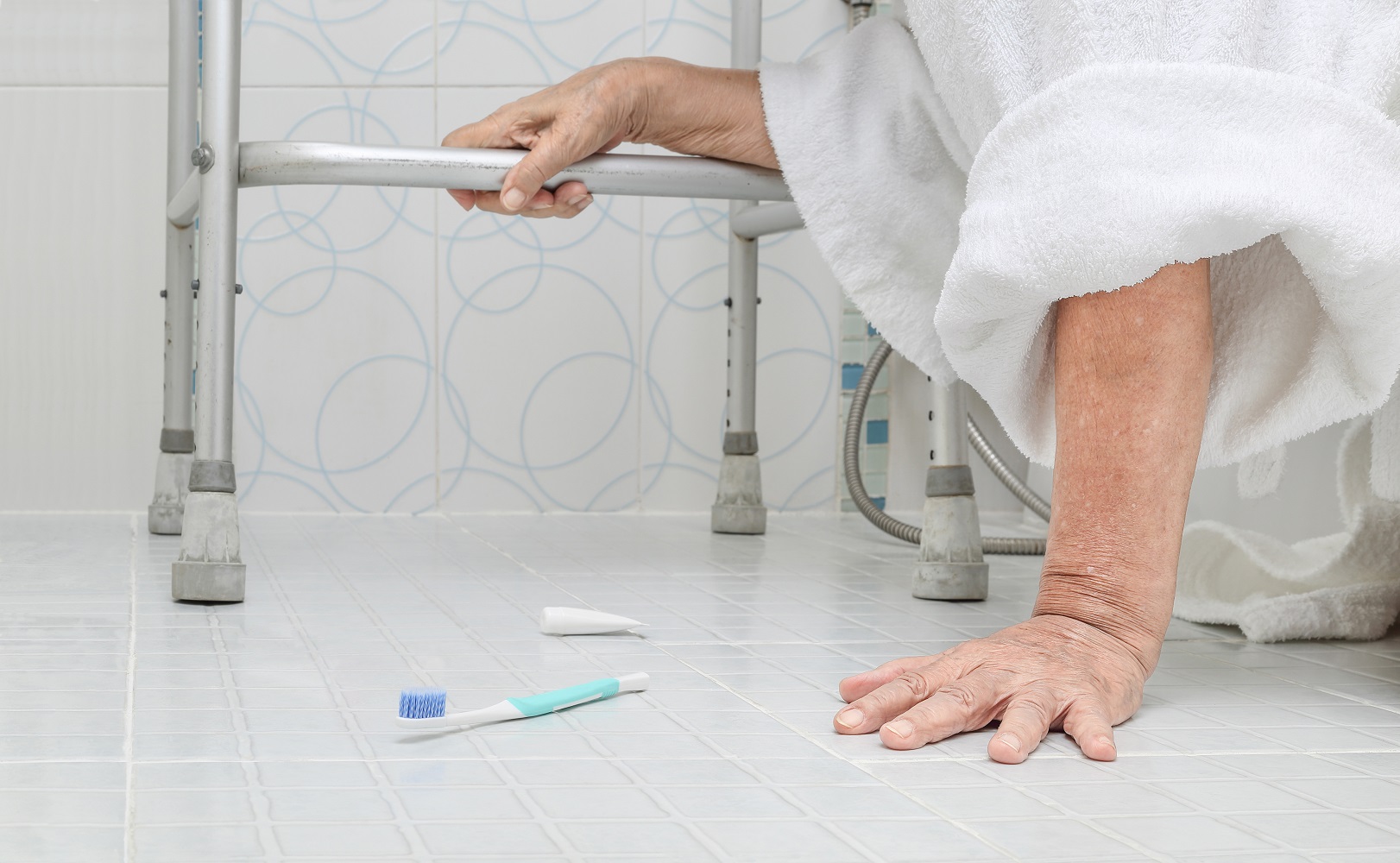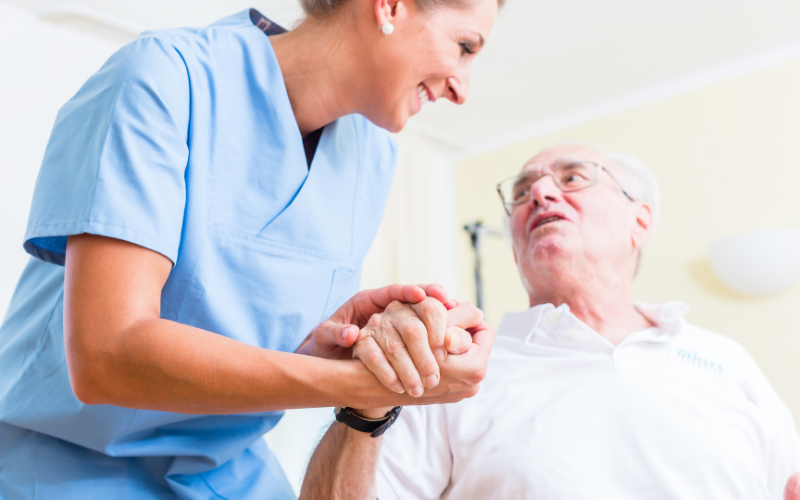
Sleep is as important as food and water. Getting adequate sleep during the night promotes alertness and a feeling of being rested. The aging process, however, can introduce sleep changes. Here are ways to help your elderly loved one who suffers from bouts of insomnia.
Healthy adults aged 65 and over are recommended to have seven to eight hours of sleep each night. Due to growing older, lifestyle changes or health conditions, a senior’s body may experience sleep-wake cycle changes. Aging bodies also produce less melatonin, a hormone that regulates sleep cycles.
Medications and experiencing physical pain can keep a senior up at night. Sleep disturbances due to prostate issues or diabetes cause the older individual to lose sleep and feel fatigued the next morning. Some seniors have trouble lying flat comfortably, which prevents them from falling asleep.
Seniors who have retired may find themselves with more idle time on their hands. Retired individuals may be less active during the day, which can throw off the normal sleep-wake cycle. These seniors may also take frequent naps during the day and experience less sleep at night.
Additional behaviors that can potentially impact a senior’s nighttime sleep include drinking caffeinated beverages or alcoholic drinks and smoking. Psychological factors that affect sleep are stress and anxiety. The many and varied consequences of sleep deprivation are concerning and should be addressed.
A lack of sleep will diminish a senior’s overall quality of life. The senior may experience depression and anxiety. The older adult with insomnia will experience reduced performance during the day. Plus, work-related accidents and car accidents are likely in a person who is not fully rested.
How do seniors improve insomnia?
1. Establish a Sleep Schedule
24-hour caregivers can take numerous steps to improve insomniac tendencies in seniors. One of the most effective strategies is to ensure the senior adheres to a regular bedtime and wakeup schedule; the senior should go to bed and wake up at the same times each day.
2. Avoid Daytime Naps
Seniors should avoid daytime naps. Taking frequent naps, even short ones, during the day will rob the individual of quality sleep at night. If a daytime nap is necessary, the aging adult should nap for no longer than 20 minutes.
3. Create a Sleep Zone
The aging person’s bedroom should be designed to encourage sleep at night. The bedroom, for example, should be meant only for sleeping, not eating, drinking, or watching television. The senior is advised to train her mind to see the bedroom as only a sleep zone.
4. Relax Before Bed
Calming down in the few hours before bedtime will help the senior experience improved sleep. The senior may unwind by reading a book or listening to music. An hour before bedtime, the older adult should turn of all electronic devices and the television to promote relaxation.
Taking a warm bath prior to bedtime facilitates sleep. Once the senior exits the warm bath, her body temperature will drop. The drop in body temperature will cause her to feel tired. The warm bath also helps the individual relax, slow down, and get ready for a good night’s rest.
5. Avoid Alcohol
In-home caregivers should be aware that caffeinated coffee will keep the senior up at night. Close to bedtime, the senior should avoid stimulating beverages, like coffee and alcohol. Even small amounts of alcohol will make it more difficult for the senior to stay asleep or will cause her to awaken once the alcoholic effects wear off.
6. Avoid Fluids Before Bed
In the same vein, a senior can combat insomnia by not drinking fluids at night. Consuming beverages before bed will force the individual to get up in the middle of the night to urinate. Bathroom trips break up the senior’s sleep and should be avoided whenever possible.
7. Exercise
Physical exercise during the day will exert the senior and promote better sleep at night. Caregivers are advised to schedule physical activities during the same times each day. It is important, however, that the exercise is completed at least three hours prior to the senior’s bedtime.
To discover more healthy habits that can help your senior enjoy their night sleep, read 8 Tested Tips To Help Your Elderly Loved Ones Sleep Better At Night
8. Spend Time in the Sun
Sunlight can help a senior’s insomnia, too. Natural sunlight lets the senior’s body know when it is time to be awake and when it is time to go to sleep. Older people who spend time outside in the sun should protect their skin by lathering on the sunscreen.
The abovementioned tips will promote a senior’s sleep at night. If these tactics fail to work, caregivers should consider scheduling a visit with the senior’s physician. A doctor can adjust medications that interfere with sleep or refer the senior to a sleep specialist, if necessary.
Families that are too busy to monitor a senior’s daily activities will find help from Assisting Hands Home Care. Our overnight caregivers are alert throughout the night; we see to it that the older care recipient sleeps well and has someone nearby in the event of a nighttime emergency.
Professional overnight caregivers from our home care agency arrive prior to the senior’s bedtime. We assist the senior with bedtime preparation, which may include bathing, dressing for bed, and using the toilet. We also safely shift the senior’s bodily position to ensure comfort in bed.
Assisting Hands Home Care services allow families to choose whether or not the professional caregiver will stay in the same room as the senior or be given a separate room nearby. Our caregivers are also licensed, bonded, and insured so that families have maximum peace of mind.
Overnight care from Assisting Hands Home Care is vital to seniors who have vision loss or suffer from dementia or Alzheimer’s disease. Seniors who have recently been released from the hospital or who are vulnerable to falls also benefit from our quality overnight care.
Choose Assisting Hands Home Care for all your elderly loved one’s overnight care needs. We are the most trusted home care provider in Batavia, Aurora, Bartlett, Geneva, St Charlette, and surrounding areas in Illinois. Call (630) 332-2203 to schedule an in-home consultation, and a representative will develop a customized care plan to meet all nonmedical care needs.
















